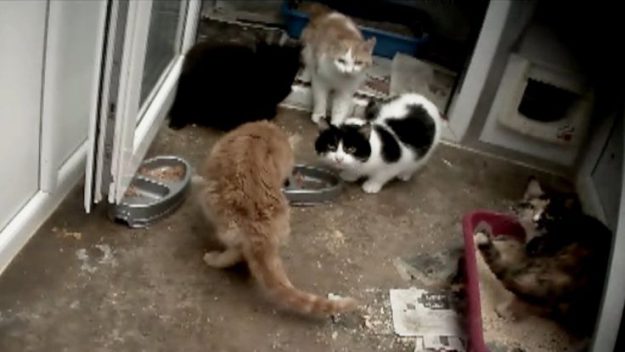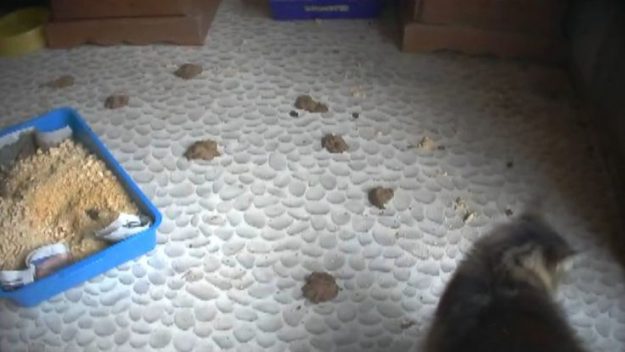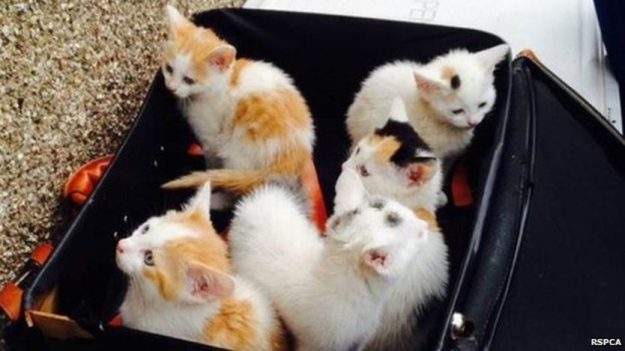The number of dogs that were reluctantly put to sleep by local authorities in the UK had decreased by 32% in 2016. Charities have done a lot over years for this significant reduction.
In the shelters of animal rescue centers in Wales, many adorable animals are all desperately in need of new homes.
Four Paws Animal Rescue South Wales(FPARSW) appeals for pet lovers to take in one of the animals on their website in a recent event.

Most of the animals on their website first come to local authority pounds as strays. They could have been abandoned or simply run away and got lost. However, according to regulation, the stray animal might be put to sleep. In the annual report of Dogs Trust, there are 3,400 stray dogs reluctantly put to sleep by local authorities in 2016.
“If there is no chip and collar or the owner’s information is out of date in the microchip, the animal will be kept for a period of seven days to allow an owner to come forward. Many local authority pounds will then destroy a dog if there are no people come forward,” says Emily Brush, the trustee and treasurer at Four Paws Animal Rescue South Wales.
But now many charity groups, like FPARSW, are working with local authorities to rehabilitate and rehome stray dogs or those which have been handed in by owners for various reasons.
“We seek to bring in dogs before they are put to sleep. Once the dog is in our care we will assess it and place in a foster home if there is space or put it into boarding kennels,” says Emily.
“As applications of dogs on our websites come in, we will complete home check. After that assuming all checks are good we will arrange for them to meet the dog and if all goes well the dog will go off to their new home once it has been vaccinated and neutered if it is old enough.”
In Wales, there are an estimated 268 animal sanctuaries. With the help of these animal rescue charities, more than thousand dogs were rehomed in 2016 (Dog Trust).
“We have helped dogs with legs missing. We also have dogs who arrive with us are pregnant and have puppies in our care. And dogs who have funny barks. Every animal is special in its own way and you can remember their names looking back at pictures,” says Emily.
Problems of charities
However, animal rescue charities also have some difficulties, among which limited space becomes the main problem.
“One of the problems we can sometimes encounter is lack of space. As a small charity, we are limited to the number of dogs we can help at any one time. We often have a large list of dogs waiting to come in and cannot help every case we are given,” says Emily. “It can be quite hard and sometimes upsetting at times as we would love to be able to help everyone but realistically it is not possible.”
Emily also reveals that other rescues and shelters also have the trouble with insufficient space for stray animals.
Another problem is the standard of animal rescue shelters. Many individuals or organizations advertising themselves as being able to rescue or rehome vulnerable animals. But they actually fail to do that.
In 2016, BBC Wales exposed poor living conditions at Capricorn Animal Rescue in Flintshire. Animals lived in dirty and overcrowding places and some of them even couldn’t access to water.


Claire Lawson, an assistant director for the RSPCA in Wales, says to BBC Wales: “Sanctuaries have done great work for animal welfare, but there is a minority falling below acceptable standards.”
Now, Welsh government is working on improving standards in animal sanctuaries.
Abandoned animals
To raise people’s awareness of animal welfare, Emily says in the event: “It’s important to improve the animal welfare in Wales. But more importantly is to reduce the number of rescue animals.”
According to the report of RSPCA in 2016, 30% of animals they rescued in Wales were abandoned. And many animals are urgently in need of veterinary care.
Dogs Trust reveals that they receive a call every five minutes from people who want to hand their dog over.

As a saying goes: A dog is for life, not just for Christmas.
Emily and her colleagues are appealing for owners of animals to feed their pets in a scientific way and not to abandon them.
Also, to avoid being abandoned the second time, the FPARSW provide lifetime rescue support. So if things don’t go to plan then the owners can return the animals to them.
But what about the owners? Should they be more responsible? The answer is yes.
Here is a story about a rescued dog from RSPCA.
.embed-container { position: relative; padding-bottom: 56.25%; height: 0; overflow: hidden; max-width: 100%; } .embed-container iframe, .embed-container object, .embed-container embed { position: absolute; top: 0; left: 0; width: 100%; height: 100%; }
